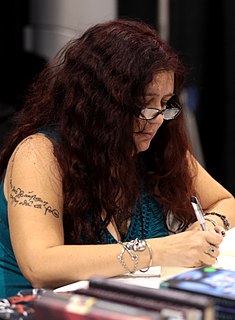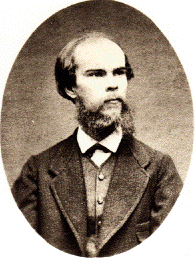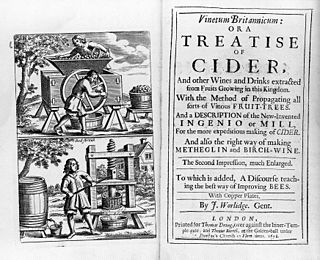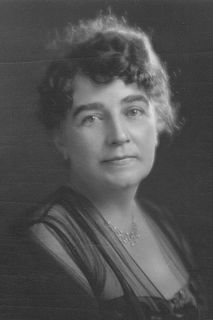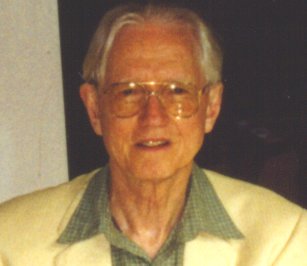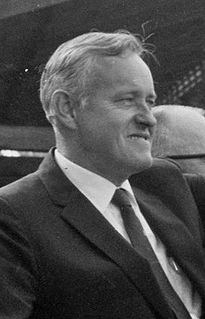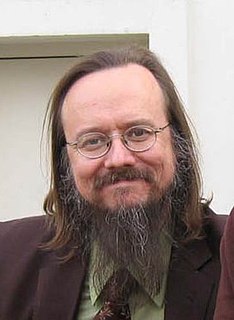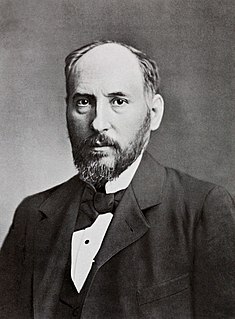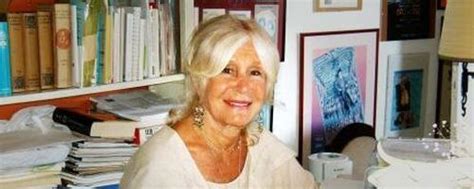Top 211 Statues Quotes & Sayings - Page 4
Explore popular Statues quotes.
Last updated on April 21, 2025.
I think anything that you can use to connect is fine. For some people it's meditation. For some people it's yoga. For some people, it's running. For some people, it's affirmations. For me, it's photographs and drawings, and affirmations, and statues, and crystals. I fill my writing space and I fill my home with symbols of what I think of as higher energy.
I don't think I'm wrong when I say that the most beautiful objects of the "stone age" were made of skin, fabric, and especially wood. The "stone age" ought to be called the "wood age." How many African statues are made of stone, bone, or ivory? Maybe one in a thousand! And prehistoric man had no more ivory at his disposal than African tribes. Maybe even less. He must have had thousands of wooden fetishes, all gone now.
How can the mind be so imperfect?" she says with a smile. I look at my hands. Bathed in the moonlight, they seem like statues, proportioned to no purpose. "It may well be imperfect," I say, "but it leaves traces. And we can follow those traces, like footsteps in the snow." "Where do the lead?" "To oneself," I answer. "That's where the mind is. Without the mind, nothing leads anywhere." I look up. The winter moon is brilliant, over the Town, above the Wall. "Not one thing is your fault," I comfort her.
She stepped closer to one of the statues. It looked wide-eyed, almost afraid as she reached out her hand. One of the women reached out and snatched Aislinn's still uplifted hand. "No." The women spoke all at once, not to her or to Keenan, but softly-as if to themselves-in a sibilant whisper. "He's ours. Fair exchange. Not yours to interfere.
The noblest calling in the world is motherhood. True motherhood is the most beautiful of all arts, the greatest of all professions. She who can paint a masterpiece, or who can write a book that will influence millions, deserve the plaudits and admiration of mankind; but she who rears successfully a family of healthy, beautiful sons and daughters whose immortal souls will exert influence throughout the ages long after paintings shall have faded, and books and statues shall have decayed or been destroyed, deserves the highest honor that man can give, and the choicest blessings of God.
Humans! They lived in a world where the grass continued to be green and the sun rose every day and flowers regularly turned into fruit, and what impressed them? Weeping statues. And wine made out of water! A mere quantum-mechanistic tunnel effect, that'd happen anyway if you were prepared to wait zillions of years. As if the turning of sunlight into wine, by means of vines and grapes and time and enzymes, wasn't a thousand times more impressive and happened all the time.
Christ alone, of all the philosophers, magicians, etc., has affirmed eternal life as the most important certainty, the infinity of time, the futility of death, the necessity and purpose of serenity and devotion. He lived serenely, as an artist greater than all other artists, scorning marble and clay and paint, working in the living flesh. In other words, this peerless artist, scarcely conceivable with the blunt instrument of our modern, nervous and obtuse brains, made neither statues nor paintings nor books. He maintained in no uncertain terms that he made ... living men, immortals.
I remember once walking out hand in hand with a boy I knew, and it was summer, and suddenly before us was a field of gold. Gold as far as you could see. We knew we'd be rich forever. We filled our pockets and our hair. We were rolled in gold. We ran through the field laughing and our legs and feet were coated in yellow dust, so that we were like golden statues or golden gods. He kissed my feet, the boy I was with, and when he smiled, he had a gold tooth. It was only a field of buttercups, but we were young.
Yes, the highest things are beyond words. That is probably why all art aspires to the condition of wordlessness. When literature works on you, it does so in silence, in your dreams, in your wordless moments. Good words enter you and become moods, become the quiet fabric of your being. Like music, like painting, literature too wants to transcend its primary condition and become something higher. Art wants to move into silence, into the emotional and spiritual conditions of the world. Statues become melodies, melodies become yearnings, yearnings become actions.
The gods gave me a father who ruled over me and rid me of any trace of arrogance and showed me that one can live in a palace without bodyguards, extravagant attire, chandeliers, statues, and other luxuries. He taught me that it is possible to live instead pretty much in the manner of a private citizen without losing any of the dignity and authority a ruler must possess to discharge his imperial duties effectively.
One of the challenges in writing the script Call Me by Your Name was that I had to find something concrete for the professor to do. In the book he is some kind of classics scholar. But I thought it would be interesting to make him into something of an art historian and archaeologist whose background was the classical world. It's always difficult when someone is supposed to be an intellectual. What do they do? You can't just film them sitting around and thinking all day. And that's what the business of the statues is all about.
She feels so contented in giving birth to a child, in helping the child to grow; and that's why she does not need any other kind of creativity. Her creative urge is fulfilled. But man is in trouble: he cannot give birth to a child, he cannot have the child in his womb. He has to find a substitute, otherwise he will always feel inferior to the woman. And deep down he does feel that he is inferior. Because of that feeling of inferiority man tries to create paintings, statues, dramas, he writes poetry, novels, explores the whole scientific world of creativity.
Your soul is a chosen landscape Where charming masked and costumed figures go Playing the lute and dancing and almost Sad beneath their fantastic disguises. All sing in a minor key Of all-conquering love and careless fortune They do not seem to believe in their happiness And their song mingles with the moonlight. The still moonlight, sad and beautiful, Which gives the birds to dream in the trees And makes the fountain sprays sob in ecstasy, The tall, slender fountain sprays among the marble statues.
In all places where there is a Summer and a Winter, and where your Gardens of pleasure are sometimes clothed with their verdant garments, and bespangled with variety of Flowers, and at other times wholly dismantled of all these; here to recompense the loss of past pleasures, and to buoy up their hopes of another Spring, many have placed in their Gardens, Statues, and Figures of several Animals, and great variety of other curious pieces of Workmanship, that their walks might be pleasant at any time in those places of never dying pleasures.
What you are lies with you. If you are lazy, and accept your lot, you may live in it. If you are willing to work, you can write your name anywhere you choose, among the only ones who live beyond the grave in this world, the people who write books that help, make exquisite music, carve statues, paint pictures, and work for others. Never mind the calico dress, and the coarse shoes. Work at you books, and before long you will hear yesterday's tormentors boasting that they were once classmates of yours.
I gather you yellow-skinned men, despite your triumphs in sewage, drinking water, and Olympic gold medals, still don't have democracy. Some politician on the radio was saying that that's why we Indian are going to beat you: we may not have sewage, drinking water, and Olympic gold medals, but we do have democracy. If I were making a country, I'd get the sewage pipes first, then the democracy, then I'd go about giving pamphlets and statues of Gandhi to other people, but what do I know? I am just a murderer!
If we refuse our homage to statues and frigid images, the very counterpart of their dead originals, with which hawks, and mice, and spiders are so well acquainted, does it not merit praise instead of penalty [Christians were punished for not worshiping Roman gods] that we have rejected what we have come to see is error? We cannot surely be made out to injure those whom we are certain are nonentities. What does not exist is in its nonexistence secure from suffering.
I remember once visiting an outdoor exhibition of sculpture in Arnhem, the Netherlands. One of the artists had placed this notice at the base of a majestic beech: "Statues are hewn by fools like me: only God could make this tree." The Taoists looked at the inside of the tree. They saw God present, not as the super-sculptor, but as the primal force from which the tree drew its being and its specific form. Becoming aware of this divine origin was for them "great knowledge," to be distinguished from the "small knowledge" of our petty, every-day existence.
I am just...wondering, where is the glow of yesteryear? I'm wondering where the heroes went. Gosh, I don't know how long ago they left. Heroes are not giant statues framed against a red sky. They are people who say: This is my community, and it is my responsibility to make it better. Interweave all these communities, and you really have an America that is back on its feet, a comfortable nation to live in again. I really think we're gonna have to reassess what constitutes a hero.
Take a Nicodemus and put a Joseph Smith's spirit in him, and what do you have? Take a Da Vinci or a Michelangelo or a Shakespeare and give him a total knowledge of the plan of salvation of God and personal revelation and cleanse him and take a look at the statues he will carve and the murals he will paint and the masterpieves he will produce. Take a handel with his purposeful effort, his superb talent, his earnest desire to properly depict the story, and give him inward vision of the whole true story and revelation, and what a master you will have!
While I've always been critical about this peddling of spiritual materialism, it wasn't until I went to Nepal that I came face-to-face with my own spiritual materialism. The thing is, Kathmandu is noisy, and dusty, and crowded, and everywhere you go you see these same Western yoga teachers, hashish-smoking backpackers, and fair-trade shop owners, all seeking the stalls filled with amazing Buddha statues, hand carved mirrors, beautiful yak scarves, and thangka paintings. And everyone is buying stuff!
Inspiration is the most valuable commodity for an artist; it is for me anyway. I can't move forward in any way if I don't feel a strong spark of excitement or creativity. Sometimes it is very difficult to get things flowing. It's important to be in a peaceful state of mind, and then I invite the spirits to come into the studio. I don't stare into a blank canvas or paper. I look through my various collections of books, toys, statues, photographs and other things, and something will trigger an idea. My studio is packed full of things that inspire me.
What deep and worthy love is so, whether of woman or child, or art or music. Our caresses, our tender words, our still rapture under the influence of autumn sunsets, or pillared vistas, or calm majestic statues, or Beethoven symphonies all bring with them the consciousness that they are mere waves and ripples in an unfathomable ocean of love and beauty; our emotion in its keenest moment passes from expression into silence, our love at its highest flood rushes beyond its object and loses itself in the sense of divine mystery.
I am running through a snowfall which is her thighs, he dramatized in purple. Her thighs are filling up the street. Wide as a snowfall, heavy as huge falling Zeppelins, her damp thighs are settling on the sharp roofs and wooden balconies. Weather-vanes press the shape of roosters and sail-boats into the skin. The faces of famous statues are preserved like intaglios.
There should be a law that no ordinary newspaper should be allowed to write about art. The harm they do by their foolish and random writing it would be impossible to overestimate--not to the artist but to the public.... Without them we would judge a man simply by his work; but at present the newspapers are trying hard to induce the public to judge a sculptor, for instance, never by his statues but by the way he treats his wife; a painter by the amount of his income and a poet by the colour of his necktie.
Heroes and scholars represent the opposite extremes... The scholar struggles for the benefit of all humanity, sometimes to reduce physical effort, sometimes to reduce pain, and sometimes to postpone death, or at least render it more bearable. In contrast, the patriot sacrifices a rather substantial part of humanity for the sake of his own prestige. His statue is always erected on a pedestal of ruins and corpses... In contrast, all humanity crowns a scholar, love forms the pedestal of his statues, and his triumphs defy the desecration of time and the judgment of history.
Ella's supersonic voice followed her all the way to Bleecker Street and then dissolved amid the noisy profusion of shops, cafes, and restaurants and the crush of people that made the West Village of Manhattan unique in the world. In a single block you could buy fertility statues from Tanzania, rare Amazonian orchids, a pawned brass tuba, Krispy Kreme doughnuts, or the best, most expensive cup of coffee you ever tasted. It was the doughnuts, incidentally, that attracted Gaia.
The idea of beauty which man creates for himself imprints itself on his whole attire, crumples or stiffens his dress, rounds off or squares his gesture, and in the long run even ends by subtly penetrating the very features of his face. Man ends by looking like his ideal self. These engravings can be translated either into beauty or ugliness; in one direction, they become caricatures, in the other, antique statues.
Traveling across the United States, it's easy to see why Americans are often thought of as stupid. At the San Diego Zoo, right near the primate habitats, there's a display featuring half a dozen life-size gorillas made out of bronze. Posted nearby is a sign reading CAUTION: GORILLA STATUES MAY BE HOT. Everywhere you turn, the obvious is being stated. CANNON MAY BE LOUD. MOVING SIDEWALK IS ABOUT TO END. To people who don't run around suing one another, such signs suggest a crippling lack of intelligence.
For suppose that every tool we had could perform its task, either at our bidding or itself perceiving the need, and if-like the statues made by Dædalus or the tripods of Hephæstus, of which the poet says that "self-moved they enter the assembly of the gods" - shuttles in a loom could fly to and fro and a plectrum play a lyre all self-moved, then master-craftsmen would have no need of servants nor masters of slaves.
We all know that men in moderate circumstances can have just as comfortable houses as the richest, just as comfortable clothing, just as good food. They can see just as fine paintings, just as marvelous statues, and they can hear just as good music. They can attend the same theaters and the same operas. They can enjoy the same sunshine, and above all, can love and be loved just as well as kings and millionaires.



